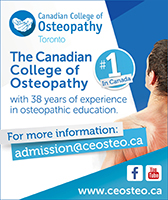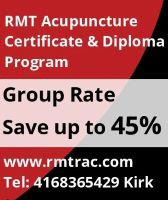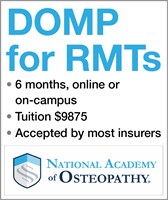|
What's Happening at the RMTAO
In the interest of public health and to maintain continuous operations, the RMTAO will be continuing to operate remotely until further notice. We will be providing regular updates to our members, and will be available to answer any questions or concerns you may have. The best way to reach a member of the RMTAO staff is to email info@rmtao.com.
Financial Literacy Question and Answer Session
During this challenging time, it can be more difficult than ever to figure out how to best manage your money. Financial literacy and credit counsellor Pamela George is offering RMTAO members another free question and answer session to answer your questions about managing your finances during the COVID-19 pandemic.
The first session, which took place earlier this week, offered attendees valuable information about managing their finances during this challenging time.
If you've already attended the first session, do not register for the second session, as the content will be largely the same and we want as many members as possible to be able to attend.
This session has a maximum capacity of 100 participants, and spaces will be offered on a first come, first served basis, so be sure to register early.
Date: Thursday, May 14, 2020
Time: 10:30 a.m. - 11:30 a.m.
Where: Online via the Adobe Connect webinar platform
If you want to ensure your question will be answered, please submit it in advance. Instructions on how to submit a question will be in your registration confirmation email.
This session is exclusively available to RMTAO members. This session will be recorded and made available to participants to watch as many times as they would like.
Register for the question and answer session online
COVID-19: Tackling the Barriers
The Ontario government is launching the COVID-19: Tackling the Barriers website to help businesses overcome the unique challenges created by the global pandemic.
Businesses working to retool their operations to produce health-related products, or those that want to continue their operations in this new environment of physical distancing, can submit any potential roadblocks to the website.
Visit the website...
CMTA Update
As we enter the seventh week of Canada's COVID-19 response, the Canadian Massage Therapist Alliance (CMTA) wanted to share some updates on what they're doing for Canadian RMTs during this unprecedented and challenging time.
As you may know, the CMTA has been working toward GST/HST exemption for massage therapists. Considering the current COVID-19 situation, the CMTA made the difficult decision to put the direct advocacy and engagement toward this goal on hold.
The RMTAO along with our partners in the CMTA remain committed to the goal of achieving GST/HST exemption for massage therapy services, however right now, our number one priority is to ensure we are doing everything we can to support our members and communities during this difficult time.
The CMTA will be using the RMT/ACT platform to communicate important national COVID-19 updates to MTs across the country so that RMTs are all receiving critical updates and information as consistently and in as timely a manner as possible.
We encourage all of our members, if you have not already done so, to please go to rmtact.ca and sign up to receive email updates so we can notify you with the most relevant information.
Cross Training for Overhead Athletes
Many athletes are experiencing a disruption to their regular training schedule. In his blog post, RMTAO member Rob Haddow has focused on what cross training overhead athletes (swimmers, volleyball players, climbers, etc.) can do in light of this disruption.
He suggests that this pandemic can also be an opportunity for athletes to focus on areas of training that would normally fall by the wayside.
Read the article on the RMTAO Blog
MS Awareness Month
Today is the beginning of MS Awareness Month. MS Awareness 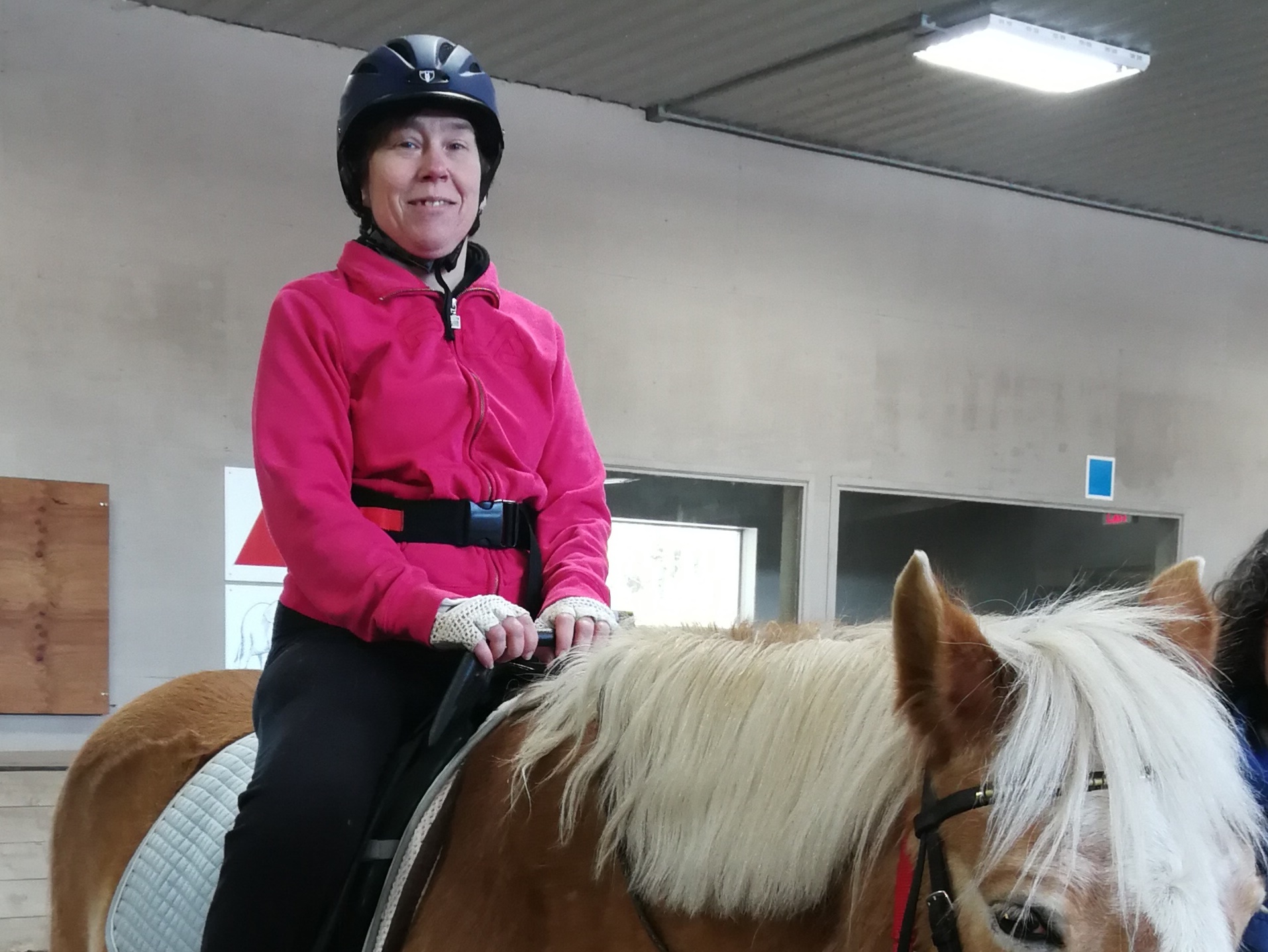 Month is aimed at improving the lives of patients with multiple sclerosis (MS), and providing support to people with MS and their families. Month is aimed at improving the lives of patients with multiple sclerosis (MS), and providing support to people with MS and their families.
Although RMTs can't treat at the moment, it's important to look back at how massage therapy has helped patients in the past. Massage therapy helped Margaret, who has MS, to gain mobility and independence.
Read more...
Adventures from Karen's Clinic Home
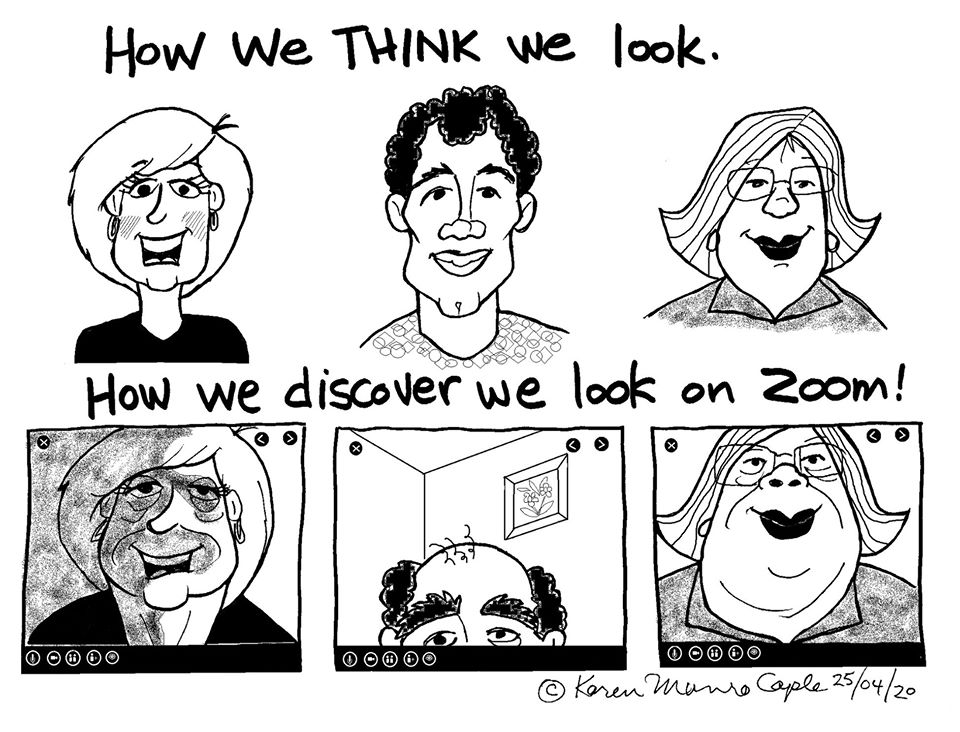
Member Question of the Week
|
Although I know we can't return to work at the moment, what factors do I need to consider once we are able to return to work after COVID-19?
The RMTAO has been working with the CMTO as they determine protocols and policies that will be in effect once RMTs are able to return to work. We are waiting from guidance and direction from the Ministry of Health prior to releasing any new information related to the return to work as this is where the ultimate decision would lie.
Some factors we are considering are personal protective equipment, disinfecting practices, physical distancing measures, patient screening, and treatment room set up changes, scheduling factors, among many other considerations.
Once more concrete direction is implemented by the government, we will ensure that we provide necessary information to our members. We also continue to advocate with the Ministry of Health to ensure that RMTs are in the best possible position to return to work, once it is safe to do so.
Do you have a question? Email info@rmtao.com |
Business Tip of the Week
|
Focus Your Writing with These 3 Tips
Writing under deadline pressure is always a challenge, but all that last-minute tinkering ultimately won’t help much if your larger message isn’t clear. Replacing the word “purchase” with “buy” would be like rearranging the deck chairs on the Titanic. Instead, take a step back and follow these three tips. First, ask yourself: Do I get right to the point? You need to lead with your central message to focus your reader’s attention. Give enough detail to contextualize your main point and cut the rest. Second, make sure your topic sentences — the first lines of each paragraph — give the reader a sense of what’s coming. These lines shouldn’t just be descriptive (I met with the client at his office in Boston), they need to communicate the most important information (My meeting with the client focused primarily on plans for future growth). Third, use active voice, not passive voice, whenever possible. Jack made a mistake is better than A mistake was made — unless, of course, you don’t want to tell on Jack. If you use these three strategies during the writing process, you shouldn’t need to do as much last-minute tinkering in the future.
Adapted from “3 Ways to Make Your Writing Clearer,” by Jane Rosenzweig
|
Research Article of the Week
Pain, disability and adherence to home exercises in patients with chronic neck pain: long term effects of phone surveillance. A randomized controlled study.
Background: Effectiveness of phone surveillance and other communication technologies in the management of neck pain patients have been evaluated previously only at the suspension of the service.
Aims: To verify whether a phone surveillance program can improve pain, disability, and adherence to home exercises in neck pain patients, and whether the improvement achieved continues to be maintained also after suspension of the support.
Design: This is a randomized controlled study.
Setting: Outpatients of Rehabilitation Unit.
Population: 84 out of 100 outpatients consecutively randomized (by blocks of four) to Phone group (N.=42, performing a 6-month home-based phone surveillance program) or to Control group (N.=42, with the only recommendation to continue exercising at home without phone surveillance) were considered. The home-based phone surveillance program consisted of 12 scheduled phone calls, each performed every fortnight by a nurse-tutor with expertise in rehabilitation for the first six months of the study. At the end of phone surveillance period, Phone patients were encouraged to continue home exercises for a further 6 months period..
Methods: Pain severity (assessed with Pain VAS), disability (Neck Disability Index), and adherence to exercises performed at home (classified as: ≥5 sessions/week, 2-4 sessions/week, occasional or no sessions) were outcome measures. Pain severity and disability were assessed at entry, at 6 and 12 months, while adherence to exercises was self-reported and recorded at 6 and 12 months. Differences between groups were analyzed with χ2 test, Student's t-test or ANOVA.
Results: At 6 months, Pain VAS (P=0.013) and Neck Disability Index scores (P=0.012) were lower in Phone patients than Controls. At 12 months, Neck Disability Index scores (P=0.026) continued to be lower in Phone patients than Controls. At 6 months, 97.6% of Phone patients and 80.9% of Controls performed rehabilitation at home with a range of 2 to 7 sessions/week; while at 12 months, the respective percentages of Phone and Control patients were 92.9% and 73.8%. Adherence to home exercises was higher in Phone patients than in Controls at 6 (P=0.013) and 12 months (P=0.019).
Conclusion: In patients with chronic neck pain, the positive effects of phone surveillance on the neck disability and adherence to home exercises still persist 6 months after the suspension of the support.
Clinical Rehabilitation Impact: This knowledge can be useful for physicians to plan home rehabilitation of neck pain patients.
Gialanella B, Comini L, Olivares A, Gelmini E, Ubertini E, Grioni G. Pain, disability and adherence to home exercises in patients with chronic neck pain: long term effects of phone surveillance. A randomized controlled study. Eur J Phys Rehabil Med 2020;56:104-11.
Read the full article...
The Learning Curve - The RMTAO Education Series
|
The Learning Curve - The RMTAO Education Series
The Learning Curve provides education to massage therapists in a variety of hands-on workshops and lecture-based seminars across Ontario focused on three main areas-Competency, Business, and Modality. The Continuing Education Program is designed to help massage therapists increase their knowledge base to continuously improve for both their own personal success and that of the client.
Click here for more information about the courses that are offered by the RMTAO.
Lumbar Mobilizations
May 24, 2020 - Windsor
The Hidden Cause of Low Back Pain: The Hip
June 7, 2020 - Ottawa
Upper Cervical Spine Mobilizations
June 14, 2020 - Sudbury
|
Upcoming Community Networks and Related Activities
The RMTAO has created a feature on RMTAO.com for Community Networks. Members and non-members can access information about the latest upcoming network activities on our list of upcoming events! Don't see a Community Based Network near you? You can contact Laura Fixman at laura@rmtao.com to learn more about starting one!
Hamilton Community Based Network
Date: May 7, 2020
Time: 1:00 pm
Location: Virtual Webex: link to the meeting
Meeting ID: 626 593 863
Password: HAMTCBN
Topic: Covid-19, Provincial plan to slowly bring back the economy and what that may look like for Massage Therapists Michael Feraday, our new Executive Director at RMTAO, will be joining us this Thursday, May 7, 2020. It’s a great opportunity to meet Michael for those who didn’t get the opportunity to at the AGM in February. There have been a lot of questions and concerns in our industry. Michael has been a part of many CBN meetings, as well as with our counterparts across Canada (BC/Saskatchewan…).
Contact: Melissa Madsen, info@eastmountainmassage.com
Read more about the event
Read more about Community Based Networks
|
IN THIS ISSUE
ADVERTISEMENTS
THE MORE YOU KNOW
As millions of Canadians eye the imminent arrival of better weather and feel the effects of six weeks stuck largely at home, some are wondering whether spending more time outdoors is a risk worth taking amid the COVID-19 pandemic
Read more... |



 Month is aimed at improving the lives of patients with multiple sclerosis (MS), and providing support to people with MS and their families.
Month is aimed at improving the lives of patients with multiple sclerosis (MS), and providing support to people with MS and their families.
